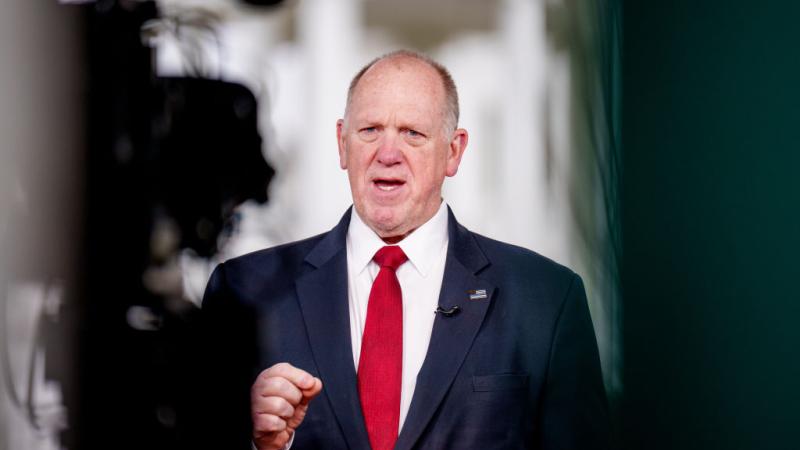After Hamas atrocities, MLK’s embrace of Israel and disdain for antisemitism confronts liberals
“Dr. King’s vision of a secure Israel and a peaceful Middle East is as relevant today as it was in the 1960s,” labor leader says.
Just 10 days before his assassination, Dr. Martin Luther King Jr. stood at a podium with war raging between Israelis and Arabs in the Middle East and strife evident in urban American communities between blacks and Jewish shopkeepers. Without equivocation, he embraced Israel and condemned antisemitism in all its forms.
“We cannot substitute one tyranny for another, and for the black man to be struggling for justice and then turn around and be anti-Semitic is not only a very irrational course but it is a very immoral course. And wherever we have seen anti-Semitism we have condemned it with all of our might,” King declared in a question-and-answer session in March 1968 at the Rabbinical Assembly.
He added for good measure: “Peace for Israel means security, and we must stand with all our might to protect its right to exist, its territorial integrity. I see Israel as one of the great outposts of democracy in the world.”
You can read the full transcript here.
Fifty-six years later, a new war rages between Israel and Hamas and fresh strife grips American cities as young liberal activists have joined with Palestinian protesters to block streets, intimidate Jewish students on campuses and throw bloodied baby dolls over the White House fences.
These new generation activists suggest Israel is an apartheid state engaged in genocide because it has declared war against Hamas for the Oct. 7, 2023, terror attacks. Some even chant “from the river to the sea,” a phrase widely viewed to be a call to eradicate Israel.
As it was a half century earlier. King’s embrace of Israel and steadfast rejection of antisemitism is an inconvenient truth on this MLK holiday for America’s far-left activists, who often champion his legacy of fighting racism while ignoring or redefining his unwavering love for the Jewish people.
As part of a TV special set to air Monday on Real America’s Voice, Just the News reviewed more than a dozen of King’s speeches and his handwritten and typed letters to figures as far ranging as union leaders and prime ministers. They expressed a resolute dedication to Israel and a relentless rejection of antisemitism, even when it was unpopular for some of his supporters on the left.
For instance, King immediately sought to distance himself from an event he briefly attended in Chicago in 1967 after its leaders passed resolutions condemning Zionism and embracing some Arab states’ anti-Israel solutions to the Middle East war at the time.
“Israel’s right to exist as a state is incontestable,” King wrote in his September 1967 letter to Adolf Held, the president of the Jewish Labor Committee.
“At the same time the great powers have the obligation to recognize that the Arab world is in a state of imposed poverty and backwardness that must threaten peace and harmony,” he added.
You can read that letter here.
Here are some of MLK's other letters touching on antisemitism and Israel.
Dr. Alveda King, the slain civil rights leader’s niece, told Just the News in the show airing Monday night that MLK’s commitment to Jews and Israel was grounded in two truths: He believed racism and antisemitism were rooted in the same hatred and intolerance, and he cherished the Jewish-American leaders who marched alongside him from Selma to Washington in the fight for civil rights.
Bernice King, MLK’s youngest daughter, has condemned both the Hamas attacks and the Israeli military counteroffensive. When actress Amy Schumer cited MLK’s opposition to antisemitism recently, Bernice King responded on X by suggesting her father would’ve demanded a cease to the Israeli military operation.
“Certainly, my father was against antisemitism, as am I. He also believed militarism (along with racism and poverty) to be among the interconnected Triple Evils,” she wrote.
“I am certain he would call for Israel’s bombing of Palestinians to cease, for hostages to be released and for us to work for true peace, which includes justice,” the younger King added.
Dr. Carol Swain, a political science professor and best-selling author, said she believes those young adults today who have embraced antisemitism do so out of ignorance, noting that much of MLK’s embrace of Israel and Jews have been relegated to footnotes or excised by modern American academics.
The Temple Beth-el in Great Neck, N.Y., where MLK gave one of his most famous speeches embracing Israel and repudiating antisemitism, commemorates that speech every January as MLK’s birthday holiday approaches. This year, New York Gov. Kathy Hochul headlined the event and used her speech to call attention to the Jewish hostages still being held by Hamas on the 100th day of the war.
“We talk about oppressors. We talk about liberation. We talked about captivity. The Jews were in the Old Testament, my teachings. There are still people in captivity right now, eight of whom are Americans," she said.
“We must stand up, I say. Where's the moral outrage about this? Why isn't this the lead story in the news every single day?” she asked.
Stuart Applebaum, a union leader who now runs the same Jewish Labor Committee that received MLK’s letter back in 1967, wrote an essay this weekend suggesting King would be just as resolute today in supporting Jews and Israel as he was in the 1960s.
“We can only speculate how, had he lived, Dr. King might have helped heal the divisions between Jews and African-Americans – or even the contributions he could have made toward achieving Middle East peace,” Applebaum wrote.
“What we do know is that Dr. King’s vision of a secure Israel and a peaceful Middle East is as relevant today as it was in the 1960s,” he added.














